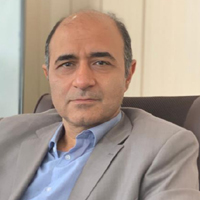Academic profession
Author(s):
Abstract:
Higher education can be characterized by a relatively open set of multiple goals; by loose mechanisms of coercion, control and steering from above by a high degree of fragmentation; and by a strong influence of the principal workers—the academic professionals—on the determination of goals, the management and administration of institutions, and the daily routines of work. Some have argued that the concept of a single academic profession might be an illusion, and that the academic profession can hardly cope with the tensions it has to live with, and that the academic profession is endangered. The concern about the academic profession is obviously entangled with themassification of higher education and the long-standing secular trend towards a “knowledge” society, a society of “lifelong learning”, or an “information” society. Whatever the short-hand title might be, the changing nature and role of knowledge in society seem to be accompanied by changes in higher education (and its interrelationship with society) which are a mixed blessing to the academic profession. There have been raised many discussions on the nature of the academic profession in the past two decades. With the change of attitude to science and technology, scientific profession has changed. In this paper, we review the academic formation of a professional crisis the challenges ahead are analyzed.
Keywords:
Language:
Persian
Published:
Journal of Higher Education Letter, Volume:6 Issue: 21, 2013
Page:
61
https://magiran.com/p1265727
سامانه نویسندگان
مقالات دیگری از این نویسنده (گان)
-
Designing an Online Project-Based Learning Model in Higher Education
Samira Saberi, *, Mojgan Mohammadi Naeeni, Mehdi Fartash
Journal of Higher Education Curriculum Stufies, -
Technical and Vocational Education Master's Course Curriculum: Presentation of suggested course titles for teacher training universities of technical and vocational education in Iran
Neda Didehvar, Nematollah Mosapour *, Gholamreza Yadgarzade, Masoume Sadat Abtahi
Qurterly Journal of Research and Planing in Higher Education,



